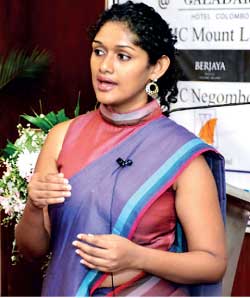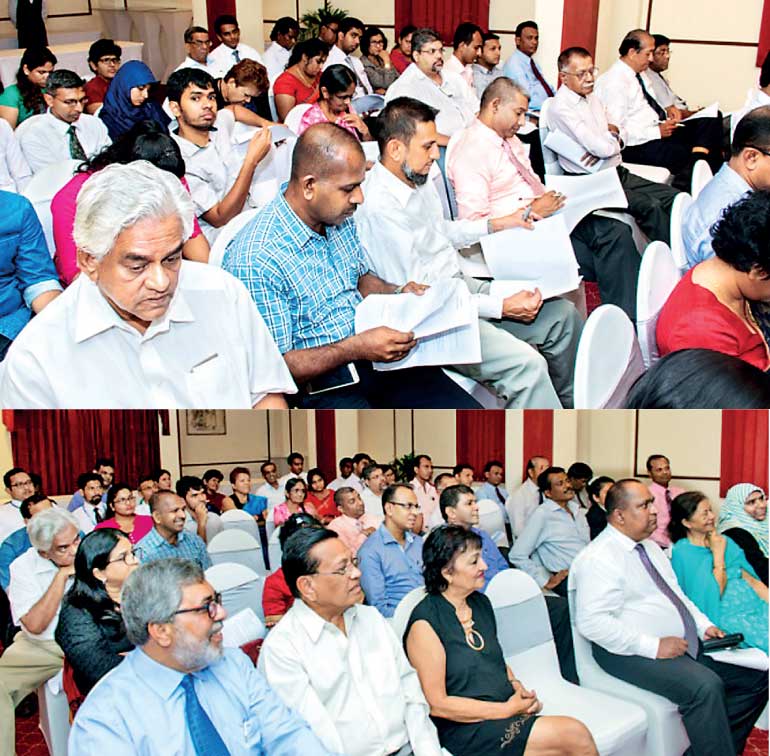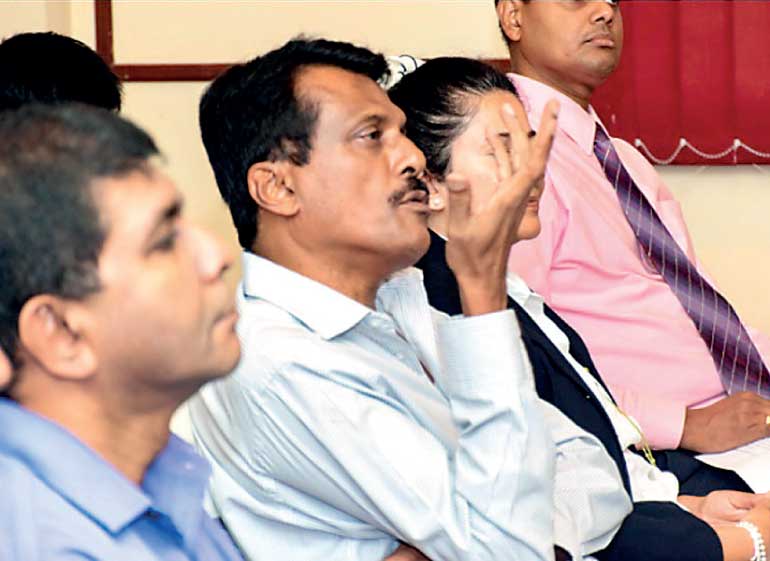Tuesday Feb 17, 2026
Tuesday Feb 17, 2026
Monday, 5 June 2017 00:02 - - {{hitsCtrl.values.hits}}
 Sankhitha Gunaratne, Manager, Right to Information, of Transparency International Sri Lanka (TISL) and an Attorney-at-Law, gave a presentation at the Members Meet evening organised by The Management Club on 24 May to a forum of TMC members and guests.
Sankhitha Gunaratne, Manager, Right to Information, of Transparency International Sri Lanka (TISL) and an Attorney-at-Law, gave a presentation at the Members Meet evening organised by The Management Club on 24 May to a forum of TMC members and guests.
Gunaratne very eloquently and clearly explained in-depth the rights of all citizens to be able to access information from public authorities. She went on to explain that this right is available to citizens of Sri Lanka and that there is no age limit to access this information that is recorded in any form.
All public institutions are expected to appoint an Information officer, who is responsible for providing information. If information is refused a citizen has the right to appeal. Any request for information may be denied if the information requested is personal, not in public interest, undermines national security and national relations with states, causes prejudice to the economy of the country, and on the basis of other limited exceptions. However, all such exceptions are subject to the qualification that even such information must be disclosed if the public interest served by the disclosure of the information is greater than the harm caused. The Right to Information Act No. 12 of 2016 sets out the details thereof.
She stressed the procedures to exercise your right to information – A written request to be made to the information officer of the relevant public authority, which must then be acknowledged. No payments to be made, except if the information is given. Even so, a fee schedule is prescribed by the relevant Gazette. She also stated that if your request is denied you can appeal to the designated officer and to the Right to Information Commission. Since RTI is a fundamental right you can ultimately make an appeal to the Supreme Court regarding a violation. 
 Gunaratne also highlighted that it has been reported that over 3,000 RTI applications had been filed in the first month since the RTI became operational on 3 February. This program was well attended and very interactive, as participants showed interest in learning more on RTI. Gunaratne highlighted the importance of citizens truly using RTI and urged the audience to engage in governance and to combat corruption, as RTI can only be of use if utilised effectively.
Gunaratne also highlighted that it has been reported that over 3,000 RTI applications had been filed in the first month since the RTI became operational on 3 February. This program was well attended and very interactive, as participants showed interest in learning more on RTI. Gunaratne highlighted the importance of citizens truly using RTI and urged the audience to engage in governance and to combat corruption, as RTI can only be of use if utilised effectively.
Photographs by Shehan Tharaka, Theewra